Around 100 journalists, media organizations, and communication and media experts from the Western Balkans and beyond joined today for the two-days conference “Solutions and Innovations in Media”. Organized by Mediacentar Sarajevo and the Citizen Association “Why Not,” this regional conference aims to strengthen and foster stronger links between media actors within and among these neighboring countries to discuss and face the current challenges of their profession jointly.
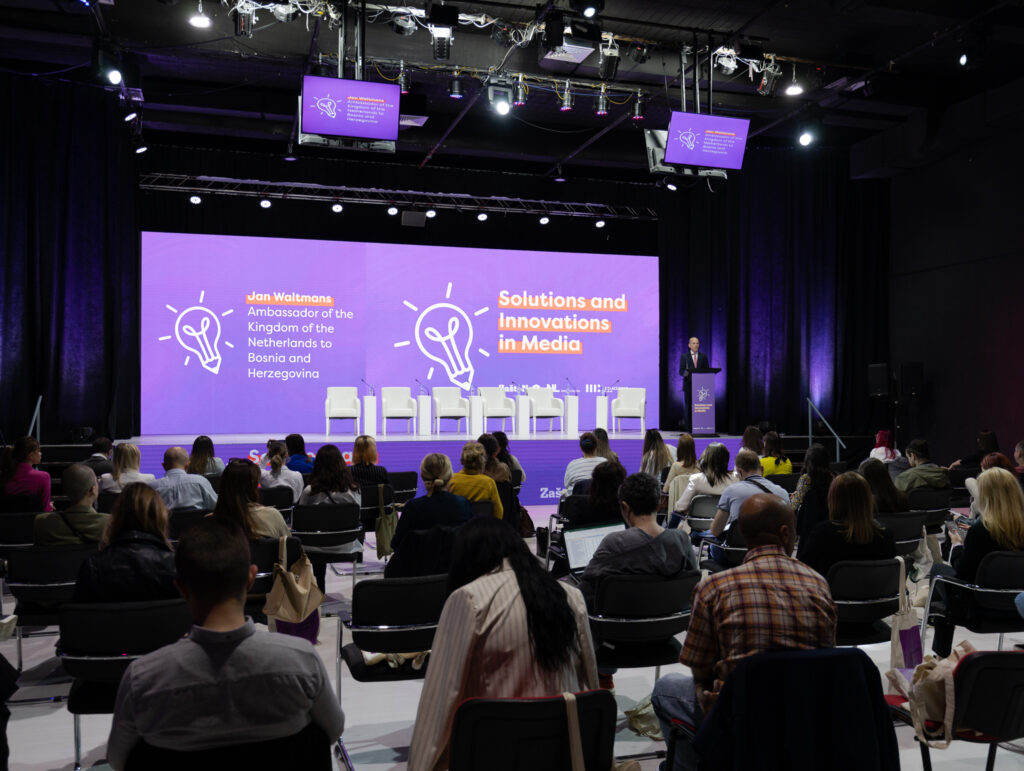
Author: Diana Malaj / Photo: Vanja Čerimagić
The different sessions will attempt to shed light on the potential and the state of play of self-regulation and regulation of the media, protection of journalists, innovations in the sector and media sustainability. The activities were opened by a salutary remark of the Ambassador of the Kingdom of the Netherlands to Bosnia and Herzegovina, Jan Waltmans. He emphasized the importance of media independence from the ruling political and economic elites to strengthen critical thinking among citizens and democracy.
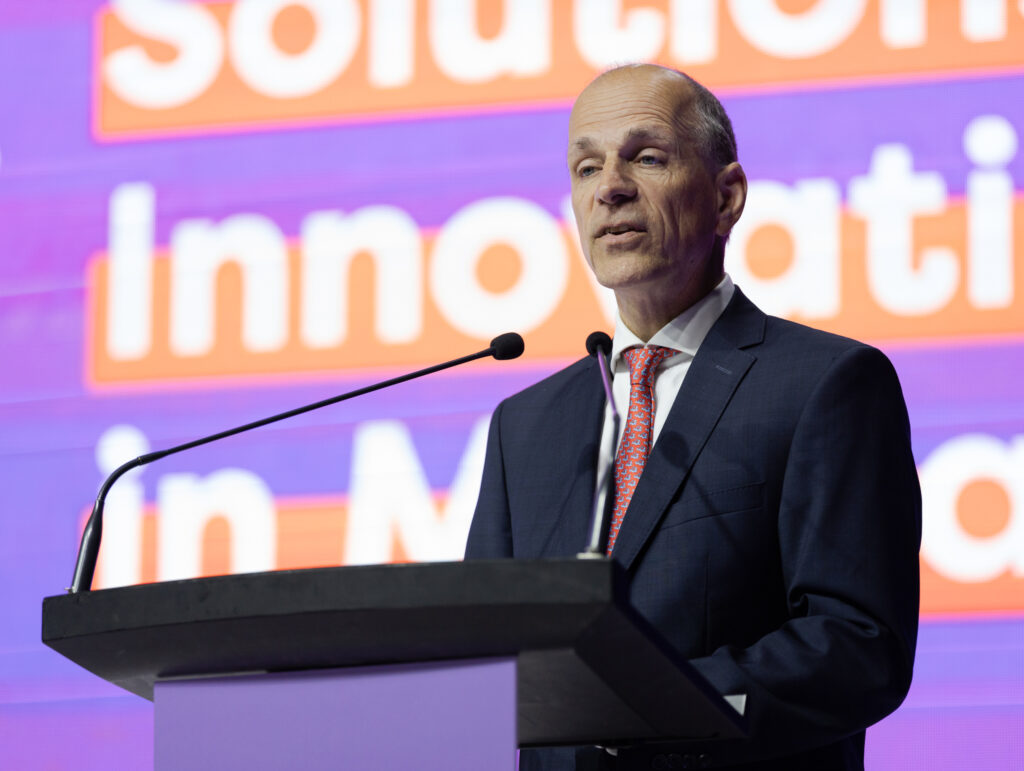
Following the opening remarks, a panel with representatives from the “Why Not” organization, Article 19, Communications Regulatory Agency BiH, Center for Humanitarian Dialogue, Klix.ba, and Council of Media Ethics of North Macedonia discussed various legal, political, and professional mechanisms related to journalism. These mechanisms should combat threats against journalists, professional standards, and fair and public information. The panelists shared concerns about risks journalists face in the region, especially for investigative work on significant political and business interests. The need for a paradigm of co-regulation and cooperation within the media sector was highlighted. While analyzing specific legislative processes such as DSA, a need for involving civil society actors in their drafting was shared as well. Moreover, the panelists discussed how transparency would be welcomed concerning the financial resources and organization of big media groups, digital platforms, and social media networks. Various initiatives were presented such as those tackling offensive online content on media platforms, building together (in partnership with political actors and NGOs) broad codes of conduct related to the use of language in media appearances and public statements, and highlighting and promoting professional standards in journalism.
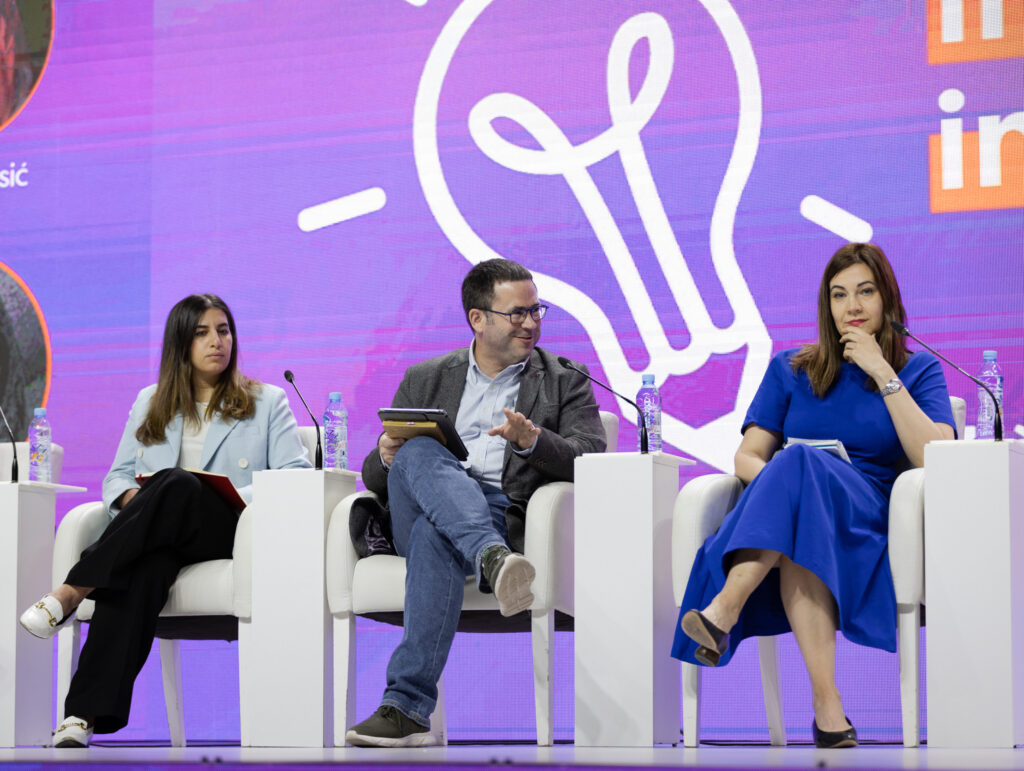
The afternoon panel centered the discussion around the need and ways of protecting journalists and restoring public trust in the media. Representatives of Mediacentar from Sarajevo, Independent Journalists’ Association from Serbia, Peace Institute from Slovenia, Office of UN resident coordinator in BiH, Metamorphosis from North Macedonia, and Krik from Serbia revealed the interconnectedness between political, financial interests and attacks against journalists and journalism in the region. Through varying examples, the participants showed how often public harassment against journalists from different political actors precedes and paves the way for covered campaigns against certain critical media and, unfortunately, physical attacks against their journalists. Public denunciations against such attacks are often not followed by prosecutions and investigations from legal institutions. Against such threats, different mechanisms and proposals were shared, such as giving journalists access to protection mechanisms, supporting trade unionism, promoting media activism and media literacy, public solidarity among colleagues, and the need to appeal to the public in cases of threats and attacks against them.
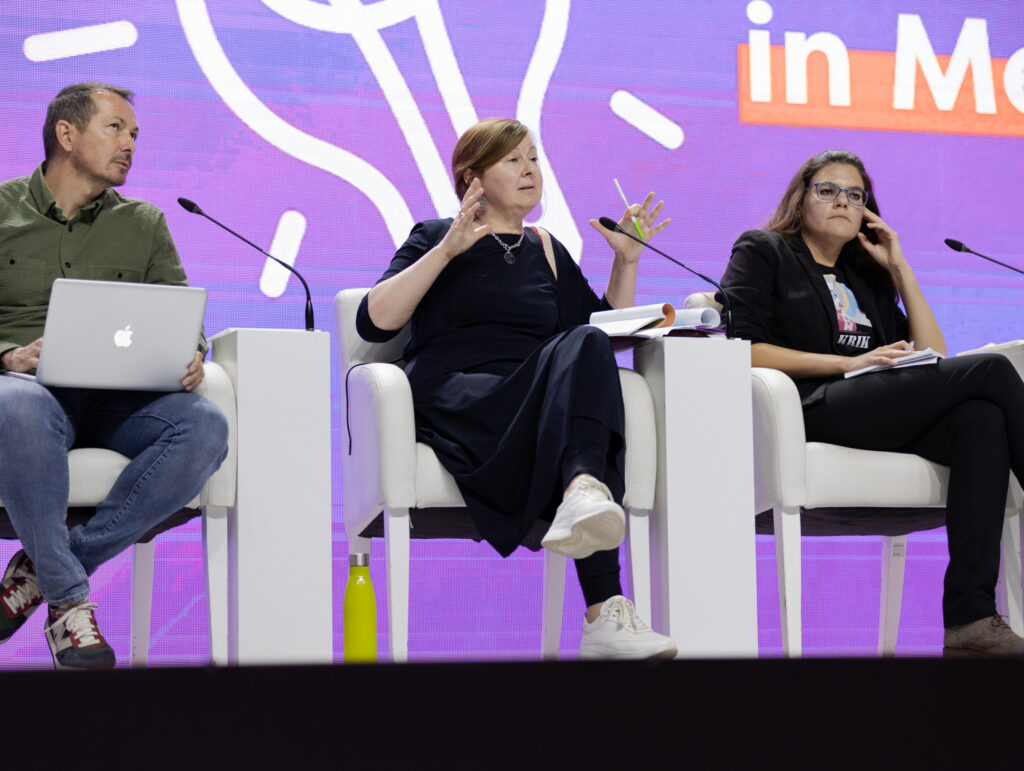
Besides the panels, in two recorded speeches, Gillian Philips as director of editorial legal services for the Guardian, shared the policies of this reputable media concerning its users’ content. She showed the importance of transparency about the standards through which users’ content is moderated. She also described how the Guardian uses human moderators and machine learning algorithms to secure its community standards. Meanwhile, Ana Brakus, from Faktograf in Croatia, revealed how fact-checking news sites challenge political elites. She also explained how her organization was and is still facing threats and attacks, mainly gender-based, from main political and financial forces for their journalistic work.
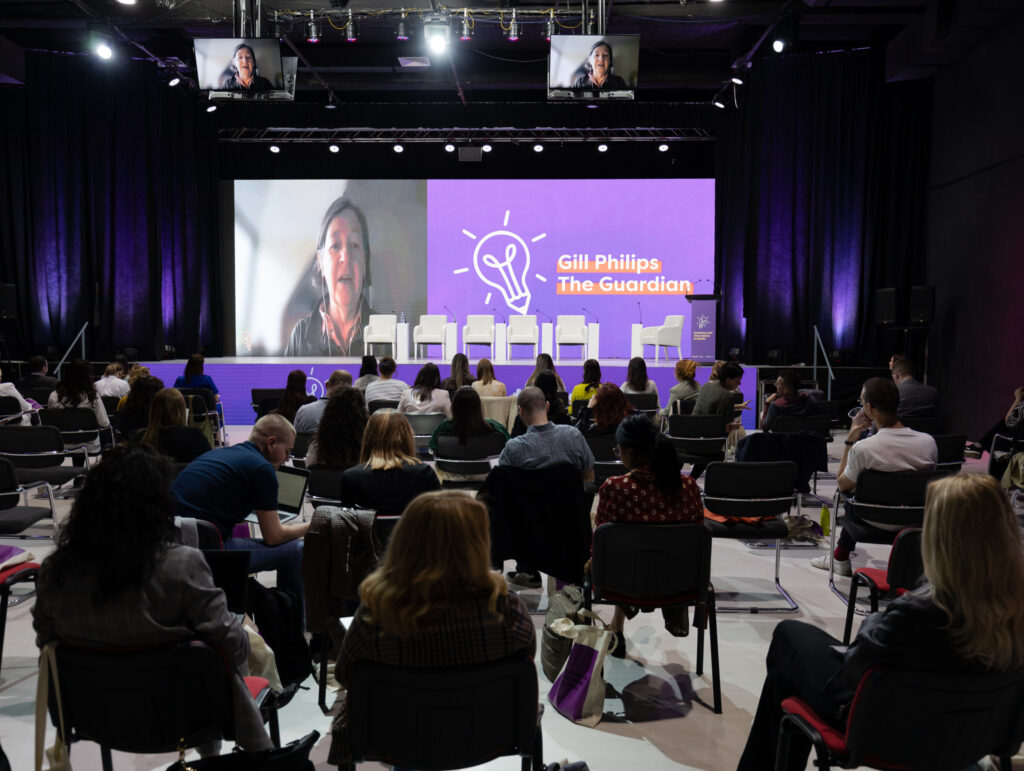
A masterclass by Robert Todoroski closed the first day of the conference, thus offering suggestions to journalists on how to secure themselves, their sources, and their archives in digital territories. Todoroski emphasized that the necessary measures for keeping the journalistic work safe should be treated as a daily habit and work ethics instead of perceiving them as isolated and once-in-a-time actions.
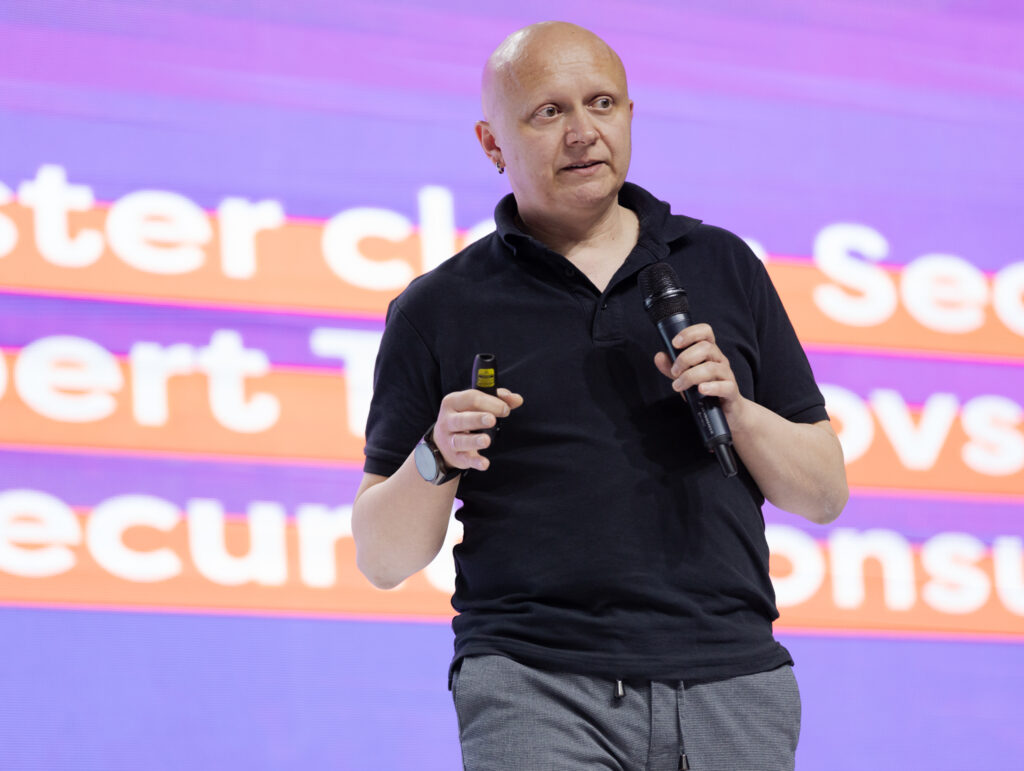
Participants will be able to continue the conversations with the panelists during the following sessions of the conference. Such conferences seem necessary to build stronger ties among colleagues to face and thrive over issues and challenges that seem regional and even beyond it, and require collective and professional counter-solutions and alternative innovations.